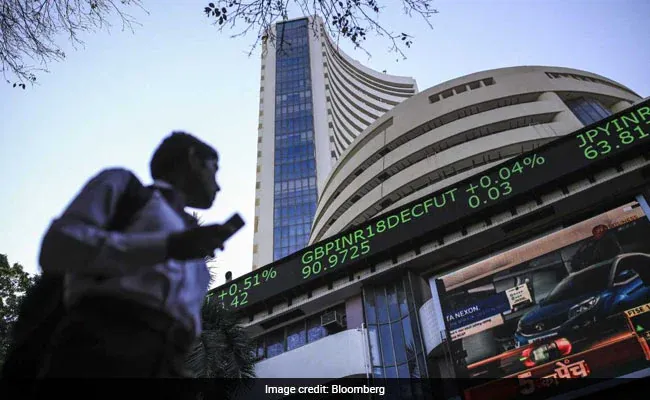Introduction to the Indian Stock Market

The stock market is a platform where publicly traded companies' stocks are bought and sold among investors. It serves as an indicator of the overall health of a country's economy and allows individuals to invest and potentially earn returns by owning a piece of a company. Unlike any other market, the stock market doesn’t exist in a brick-and-mortar form. It is an electronic market where transactions are conducted digitally. It is also important to note that investors can access the stock market via a registered market intermediary called the stockbroker.
The stock market operates through stock exchanges. The Indian stock market is comprised of two major stock exchanges: the Bombay Stock Exchange (BSE) and the National Stock Exchange of India (NSE). These exchanges provide a platform for the trading of stocks of Indian companies. The price of a stock is determined by supply and demand, and the stock market can be affected by various economic, political, and company-specific factors.

The Indian government regulates the stock market through the Securities and Exchange Board of India (SEBI), which aims to protect the interests of investors and promote the growth of the market. The Indian stock market has grown significantly in recent years, with increased participation from both domestic and foreign investors.
Who can invest in the Indian stock market?
The stock market has several key participants, as described below. These participants interact and influence each other, contributing to the functioning and growth of the stock market.
- Domestic Retail Investors: Individual investors who buy and sell stocks for their personal portfolios.
- NRIs (Non-resident Indians) and PIOs (Persons of Indian Origin): NRIs and PIOs are eligible to trade stocks and convertible debentures of Indian firms through a registered broker.
- Domestic Institutional Investors: Large financial organizations such as mutual funds, pension funds, and insurance companies that make investments on behalf of their clients. Other corporate entities in India also invest in the stock market.
- Foreign Institutional Investors (FIIs): Foreign institutional investors mainly consist of mutual funds, pension funds, endowments, sovereign wealth funds, insurance companies, banks, and asset management companies.
At present, India does not allow foreign individuals to invest directly in its stock market. However, high-net-worth individuals (those with a net worth of at least $50 million) can be registered as sub-accounts of an FII.
How stocks are traded in the stock market?
Stocks are traded on a stock market through the buying and selling of shares by investors. The process typically involves the following steps:
- Opening a brokerage account: Individuals need to open a brokerage account with a registered broker to participate in the stock market.
- Researching stocks: Investors research and choose the stocks they want to purchase, taking into account factors such as the company's financials, industry trends, and analyst reports.
- Placing an order: Investors place a buy or sell order through their brokerage account, specifying the stock, the number of shares, and the price they are willing to pay or receive.
- Execution of trade: The broker executes the trade by matching the buy and sell orders and completing the transaction at the agreed-upon price.
- Holding or selling the stock: Investors can hold onto the stock for the long term or sell it at a later time, potentially realizing a profit or loss based on the stock's performance.
It's important to note that the stock market is subject to volatility and stock prices can fluctuate rapidly, so investing in the stock market requires a long-term outlook and a solid understanding of the risks involved. Trading, on the other hand, requires a deeper understanding of price movements.
What factors move the stock prices up and down?
The stock market is a complex, interrelated system composed of large and small investors making uncoordinated decisions about a huge variety of investments. Each market participant acts and plays freely based on their individual ideas and following their own personal interests. Thus, stock market prices are influenced by various factors like government policies, interest rates and inflation, economic numbers, etc. But, ultimately the price at any given moment is due to the supply and demand at that point in the market.

The forces that influence stock market prices can be categorized into three general segments: fundamental factors, technical factors, and market sentiment. Fundamental factors drive stock prices based on a company's earnings and profitability from producing and selling goods and services. And, technical factors relate to a stock's price history in the market pertaining to chart patterns, momentum, and behavioral factors of traders and investors.
Let’s look at some of these factors:
- Company Performance: The financial performance and future prospects of a company, such as earnings reports and guidance, impact its stock price.
- Economic indicators: Macroeconomic indicators such as gross domestic product (GDP), inflation, and interest rates can influence stock prices as they signal the overall health of an economy.
- Market sentiment: The overall optimism or pessimism of investors towards the stock market can impact stock prices, as investors buy or sell stocks based on their outlook.
- Political events: Political events such as elections, legislation, and policy changes can have a significant impact on stock prices, especially for companies in affected industries.
- Global events: Geopolitical events such as natural disasters, wars, and pandemics can have a major impact on the global economy and stock prices.
- Supply and demand: Basic market dynamics of supply and demand, influenced by the buying and selling decisions of market participants, ultimately determine stock prices.
These factors can interact and influence each other, leading to short-term fluctuations and long-term trends in the stock market.
Ending Note
Emerging markets like India are fast becoming engines for future growth. Currently, only a very low percentage of the household savings of Indians are invested in the domestic stock market, but with a lucrative market and new investing mechanisms, more people are trying out investing.
Learning the ways of the stock market can be hard, but being a part of an active community of experts can make it easier. Covesto is a knowledge-sharing platform for investors where they can share their expertise on the stock market and good investment ideas with fellow investors. Head over to Covesto and start your journey of community investing today!

